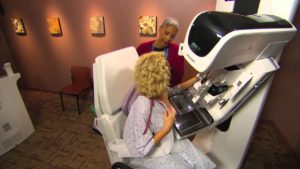 In some instances, people need to prepare for their diagnostic imaging examination. Depending on the type of imaging exam you will have, your preparation prior to the imaging exam will be different. For instance, you may need to prepare for the examination up to 24 hours in advance by fasting or observing some special diet, or you may be instructed to simply eat and behave normally. Capitol Imaging Services will advise you on any needed exam preparations. For your convenience, below we have provided common preparations.
In some instances, people need to prepare for their diagnostic imaging examination. Depending on the type of imaging exam you will have, your preparation prior to the imaging exam will be different. For instance, you may need to prepare for the examination up to 24 hours in advance by fasting or observing some special diet, or you may be instructed to simply eat and behave normally. Capitol Imaging Services will advise you on any needed exam preparations. For your convenience, below we have provided common preparations.
In general, you should prepare for your diagnostic imaging examination by becoming as well educated as possible about the procedure you will undergo. Immediately prior to your examination, the imaging center staff or physicians (called radiologists) may take some time to specifically explain to you what will happen in preparation for the procedure and during the imaging test itself. You can contribute a great deal to the quality and success of your imaging study by learning about the process and cooperating as best as you can.
In general, education about your upcoming imaging exam could include learning about:
- specific type of imaging tests that will be run
- what the test will determine or diagnose
- what preparation is necessary
- whether you will need to receive a pharmaceutical contrast solution (liquid)
- approximate duration of exam
- basic instructions to follow during the exam (for example, "relax and lie very still")
- the benefits and potential risks of the specific imaging exam.
Some questions you may be asked before having certain diagnostic imaging tests might include:
- "Are you pregnant?"
- "Are you allergic to iodine or shellfish like shrimp?"
- "Have you had any brain, eye or ear surgery?"
- "Have you ever had a heart surgery?"
- "Have you ever had joint surgery or replacement?"
- "Do you wear permanent eyeliner?"
- "Have you ever worked with metal?"
- "Do you have any metal objects implanted in your body?"
- "Do you have a pacemaker?"
Please discuss any of the above issues with your physician or imaging center staff before your diagnostic exam, especially if the answer in your case is "yes" to any of the questions. In general, don't be afraid to ask questions.
Preparing for Your Exam
Tips to prepare your child for an Imaging Examination
As caring parents, we all want to make unfamiliar or uncomfortable experiences such as health care or imaging exams a better experience for our children. Here are some tips to prepare your child for an imaging exam:
- Get familiar with the imaging test yourself so you can explain to your child in simple terms what to expect.
- Make sure you understand whether the procedure will expose your child to radiation and learn more about the American College of Radiology campaign called Image Gently. Capitol Imaging Services has established protocols and systems to use the absolute lowest radiation dose within an exam.
- If your child is under the age of five, talk to him or her a day or two before the imaging exam. If your child is older, talk to him or her about a week before the procedure, giving your child a few days to process the information and ask questions.
- Be honest. Explain in words your child will understand what he or she will see, feel and hear during the procedure.
- Encourage your child to discuss his or her feelings and to ask you and the health care professional questions about the upcoming experience. Feeling understood and listened to help your child feel more connected. If you do not know how to answer your child’s questions, please contact us and we will do everything we can to provide the accurate answer to your child’s question.
- Take your cues from your child. Many children are unable to express their feelings and anxieties verbally. Be careful not to force a discussion or overwhelm your child with information.
- Help your child pack a bag to bring to the exam. Encourage your child to pack items that will comfort and distract.
- Dress your child in comfortable clothing. Avoid metals on clothing.
- During the procedure, speak in a soft and comforting voice. Give choices between comfort items such as a stuffed animal or CD. Try to focus on the positive and provide reassuring comments such as “Great job squeezing my hand,” or “You are holding still so well.”
Remember, children will pick up on your anxiety, so do your best to be calm during the exam and help your child have a better experience.

